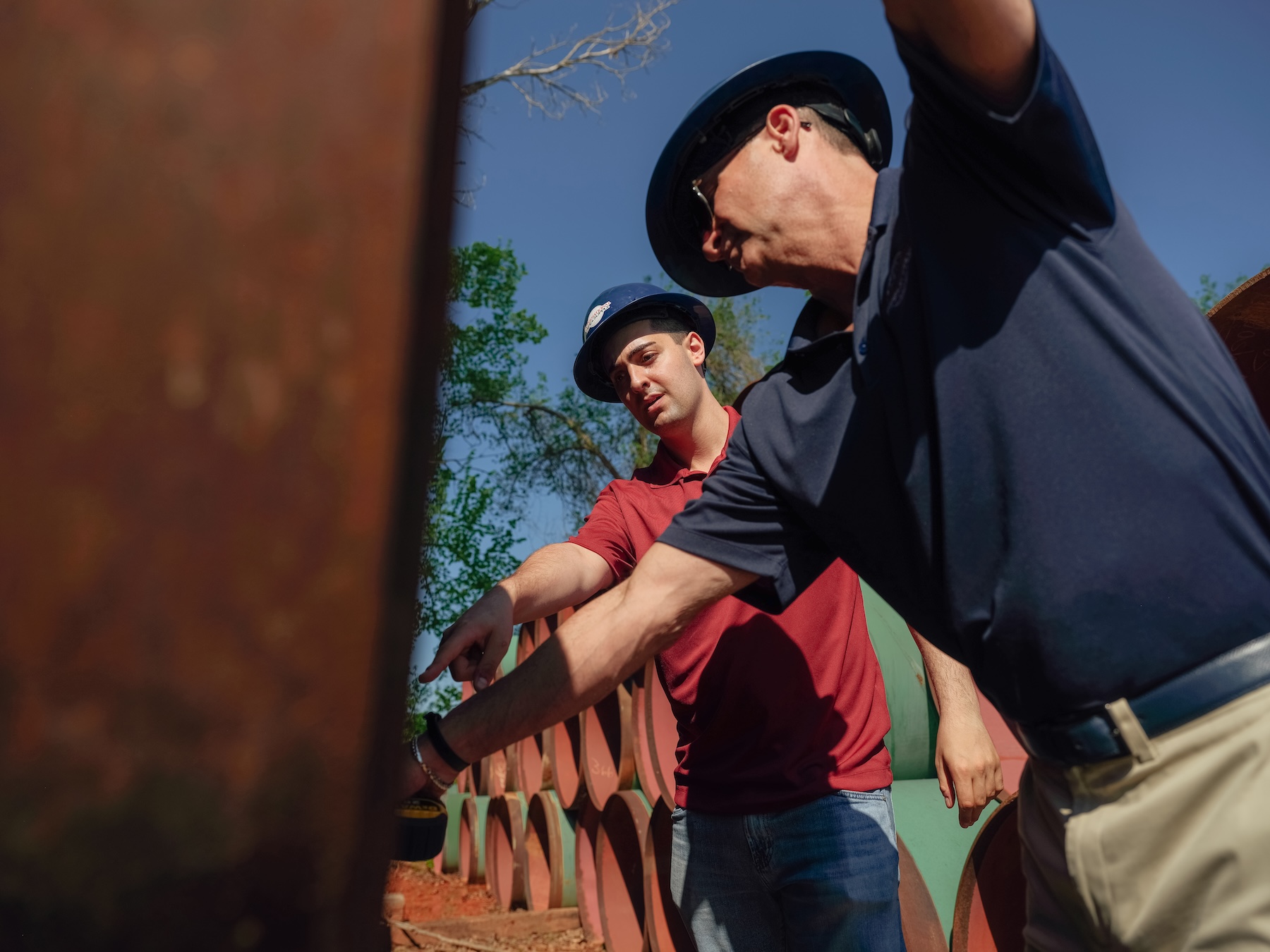#6 • 5/17/24
Steel pipe is meticulously crafted through a rigorous process of quality control, ensuring every pipe meets the highest standards.
The journey begins in the steel mill. Molten metal is transformed into ingots, slabs and billets. In order to meet rigorous standards for ASME, AWWA or API standards and become pipe, they must pass through a gauntlet of tests:
- Chemical analysis: Ensuring the perfect blend of elements, guaranteeing the pipe’s desired properties.
- Surface inspections: Visual and automated checks for lamination, cracks, scratches, or imperfections that could compromise its integrity.
- Dimensional measurements: Verifying raw material specifications, pipe’s diameter, wall thickness, and other critical dimensions to be within tight tolerances for each grade.
Nondestructive testing (NDT) plays a crucial role in uncovering hidden flaws. Techniques like:
- Ultrasonic testing: Sending sound waves through the pipe to detect internal cracks or inclusions.
- Radiographic testing: Using X-rays or gamma rays to reveal internal defects like porosity or slag inclusions.
- Magnetic particle testing: Detecting surface and subsurface cracks by applying a magnetic field and observing the buildup of particles.
Destructive testing Plays a crucial role in testing the performance of your steel product under stress conditions.
- Hardness testing (when required): Material hardness determines whether components undergo permanent deformation due to stress.
- Corrosion testing: Corrosion testing is a test method done to test the effectiveness of applied corrosion resistance measures.
- Charpy impact testing: This test indicates whether the metal is tough or brittle. In addition, the tough or brittle transition can be determined based on temperature.
- Yield and tensile strength testing: This test measures the deformation (or the plasticity) of materials that occur after yield strength has been reached and tensile strength is tested.
Once deemed flawless, the pipe undergoes a final trial by fire. Hydrostatic testing, subjects the pipe to immense internal pressure, simulating real-world stresses and ensuring it can withstand the demands of its intended use.
At International Pipe, quality is not just a word; it is our unwavering commitment. We employ the most advanced quality control inspection methods adhering to the strictest industry standards, from ASTM to API. Our experts are dedicated to procuring only the highest quality steel pipe products.

